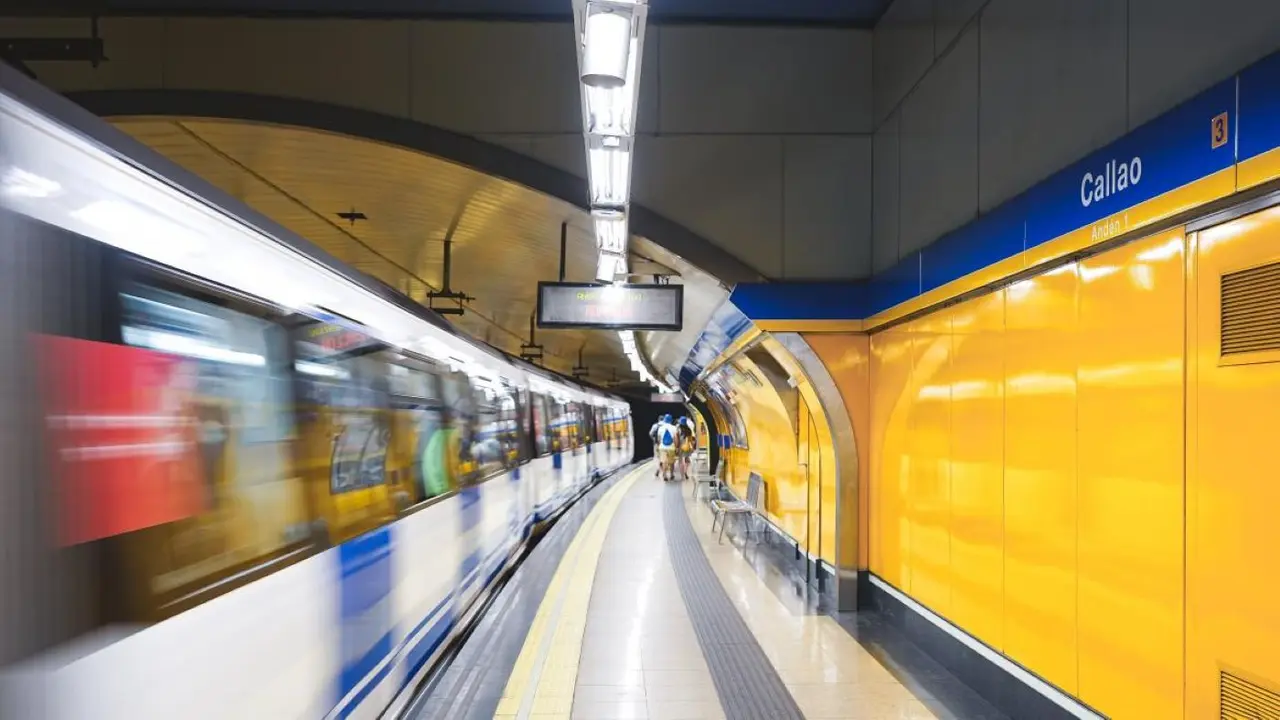Transformation des städtischen Verkehrs mit Last-Mile-Logistik
Die Comunidad de Madrid sorgt für Aufsehen im städtischen Verkehr, indem sie die Statuten ihres Metrosystems ändert, um den Pakettransport zu erleichtern. Dieser innovative Ansatz zielt darauf ab, die Effizienz der Logistik zu verbessern, ohne den Personenverkehr zu unterbrechen. Da die Einführung des neuen Projekts für das letzte Quartal des Jahres, insbesondere auf den Linien 3 und 12, geplant ist, steht sowohl für Pendler als auch für lokale Unternehmen ein transformativer Wandel bevor.
Hauptziele hinter der Veränderung
Im Kern konzentriert sich diese Initiative, bekannt als das Última milla Projekt, auf die Integration von Logistikdienstleistungen in das U-Bahn-System. Durch die Ermöglichung des Pakettransports zusammen mit den täglichen Pendlerdiensten zielt die U-Bahn darauf ab, die Abläufe effizienter zu gestalten. Die Hauptziele, die diese Anpassung vorantreiben, sind:
- Erweiterung der Dienstleistungsangebote: Integrieren Sie Paketabholung, -transport, -lagerung und -zustellung direkt in den bestehenden Rahmen der U-Bahn.
- Auswirkungen auf die Umwelt: Reduzierung der Oberflächenverschmutzung durch Eliminierung von etwa 5.000 täglichen Bodenzustellungen und Verringerung der durch rund 700 Lieferwagen verursachten Staus.
- Nutzung von nicht ausreichend genutzten Ressourcen: Nutzen Sie die U-Bahnen außerhalb der Stoßzeiten optimal und nutzen Sie die verfügbaren Einrichtungen für die Paketabfertigung.
Betriebliche Einblicke und Zeitpläne
Der operative Plan ist recht strategisch. Züge werden den Pakettransport außerhalb der Hauptverkehrszeiten übernehmen – insbesondere von 5:00 bis 6:00 Uhr auf der Linie 3 und von 19:00 bis 21:00 Uhr auf der Linie 12. Diese Initiativen symbolisieren eine vollständige Verlagerung der traditionellen Logistik und ermöglichen nachhaltige Vertriebsmodelle, die die bestehende Infrastruktur auf eine Weise nutzen, die es noch nie zuvor gegeben hat.
Innovation durch Pilotversuche
Die Entscheidung, die Satzung der Metro zu ändern, wurde nicht leichtfertig getroffen. Sie basierte auf der erfolgreichen Durchführung von Pilotversuchen, die sowohl die technische Machbarkeit als auch die wirtschaftliche Rentabilität demonstrierten. Diese scheinbar umsichtige Änderung wird voraussichtlich eine transformative Rolle im Madrider Logistik-Ökosystem spielen.
Vorteile für lokale Unternehmen und Einwohner
Die Integration von Logistikdienstleistungen in das Transportnetzwerk hat tiefgreifende Auswirkungen sowohl auf lokale Unternehmen als auch auf Anwohner. Sie bietet eine zuverlässige Alternative für Paketzustellungen und reduziert gleichzeitig die Zustellkosten und den ökologischen Fußabdruck. Genauer gesagt, einige wesentliche Vorteile sind:
- Kosteneffizienz: Lokale Unternehmen können bei den Lieferkosten sparen und haben gleichzeitig direkten Zugang zu effizienten Transportlösungen.
- Zeitersparnis: Schnellere Pakettransfers und eine geringere Abhängigkeit vom Straßentransport können zu schnelleren Lieferzeiten führen.
- Erhöhte Verlässlichkeit: Mit der Anpassung des Transportsystems werden Unternehmen und Verbraucher zuverlässigere Lieferpläne genießen.
Eine grünere Zukunft für die Logistik
Einer der herausragenden Vorteile dieses Projekts ist sein Potenzial zur Reduzierung von Emissionen. Indem 700 Transporter von den Straßen genommen und Lieferungen in U-Bahn-Dienste integriert werden, wird eine erwartete Reduzierung sowohl der Verkehrsstaus als auch der damit verbundenen Umweltverschmutzung im städtischen Raum erreicht. Dies ist nicht nur ein Gewinn für die Effizienz, sondern ein solider Schritt in Richtung Nachhaltigkeit.
Adaptive Einrichtungen für die Zukunft
Die Metro wird bisher ungenutzte Flächen in Lager- und Verteilerzentren umwandeln und so ein Ökosystem schaffen, das sowohl flexibel als auch auf Umweltziele ausgerichtet ist. Durch die Nutzung nachhaltiger Liefermethoden wie Fußwege oder Lastenfahrräder ebnet die Initiative den Weg für umweltfreundliche Logistikpraktiken im urbanen Transportbereich.
Die Auswirkungen auf die globale Logistik
Der Erfolg der Madrider Initiative könnte als Maßstab für andere städtische Zentren weltweit dienen, die ihre Logistikrahmen optimieren wollen. Wenn sich dieser Ansatz zur Integration der Logistik in den öffentlichen Nahverkehr als wirksam erweist, könnte er ähnliche Umsetzungen auf der ganzen Welt anregen. Solche Veränderungen könnten die Koordination zwischen verschiedenen Transportmodalitäten verbessern und zu einem reibungsloseren städtischen Logistiknetzwerk weltweit führen.
Schlussfolgerung: Auf dem Weg zu einer nachhaltigen Zukunft
Zusammenfassend lässt sich sagen, dass der innovative Schritt der Comunidad de Madrid, den Pakettransport in U-Bahn-Zügen zu gestatten, auf eine Zukunft hindeutet, in der urbane Logistiksysteme maximal effizient sind. Diese Entwicklung verbessert nicht nur das Serviceangebot lokaler Unternehmen, sondern reduziert auch deren Umweltauswirkungen erheblich. Da Madrid weiter wächst und seine Transportsysteme anpasst, ist die Bewältigung logistischer Herausforderungen durch öffentliche Verkehrsmittel vielversprechend.
Wenn Sie Logistiklösungen für Ihr Unternehmen oder Ihre persönlichen Bedürfnisse in Betracht ziehen, bietet GetTransport.com eine vielseitige Plattform, die kostengünstige globale Frachttransportlösungen bietet – egal, ob Sie Häuser, Büros oder sperrige Gegenstände wie Möbel und Fahrzeuge umziehen. Die Einfachheit und Zuverlässigkeit ihrer Dienstleistungen ermöglichen es Ihnen, die Logistik mit Zuversicht zu meistern und sicherzustellen, dass Sie den besten Preis und Service erhalten, der auf Ihre Bedürfnisse zugeschnitten ist. Buchen Sie noch heute Ihren nächsten Frachttransport mit GetTransport.com!

 Die neue Satzung der Madrider Metro gestaltet die Pakettransportdienste neu">
Die neue Satzung der Madrider Metro gestaltet die Pakettransportdienste neu">